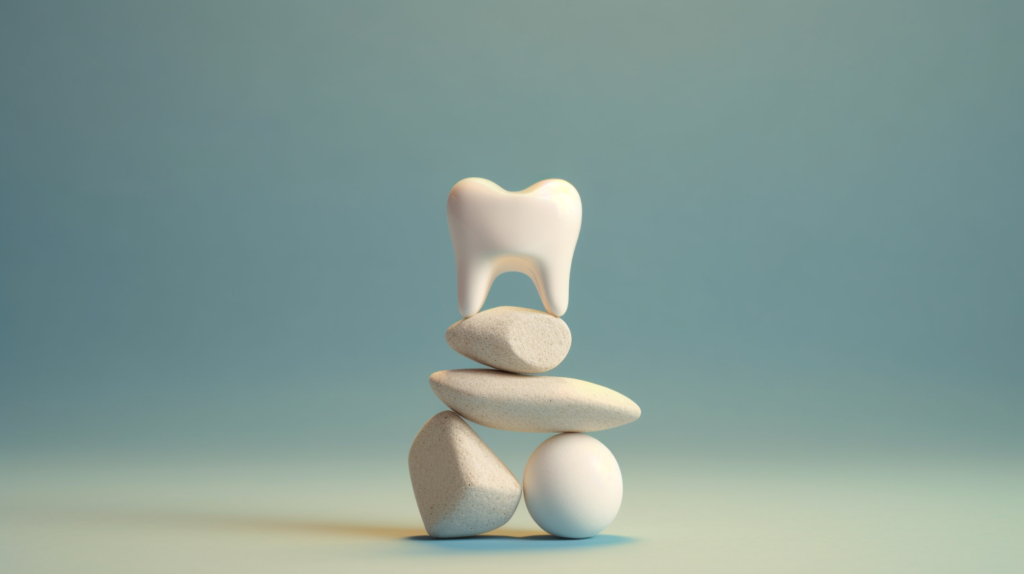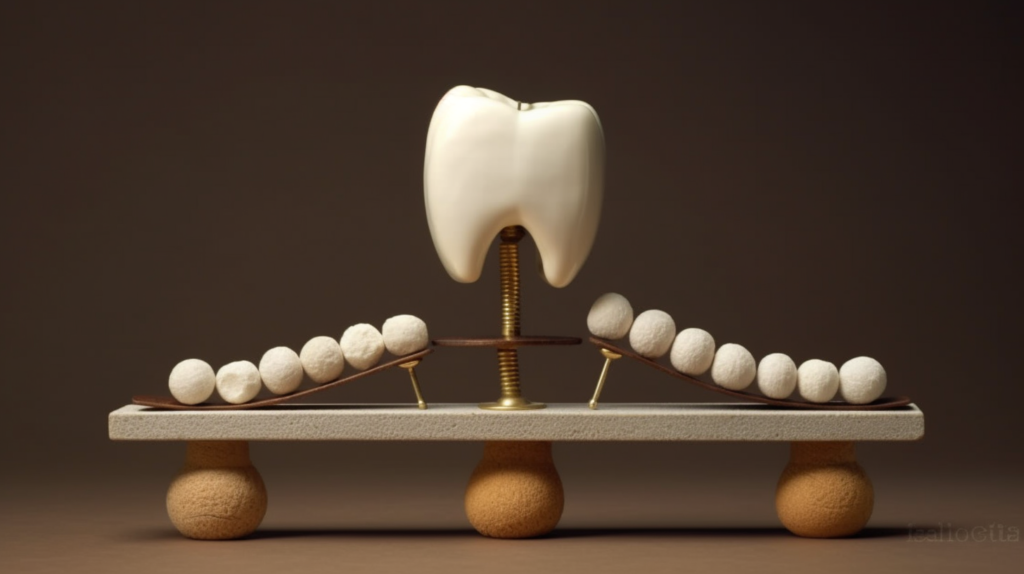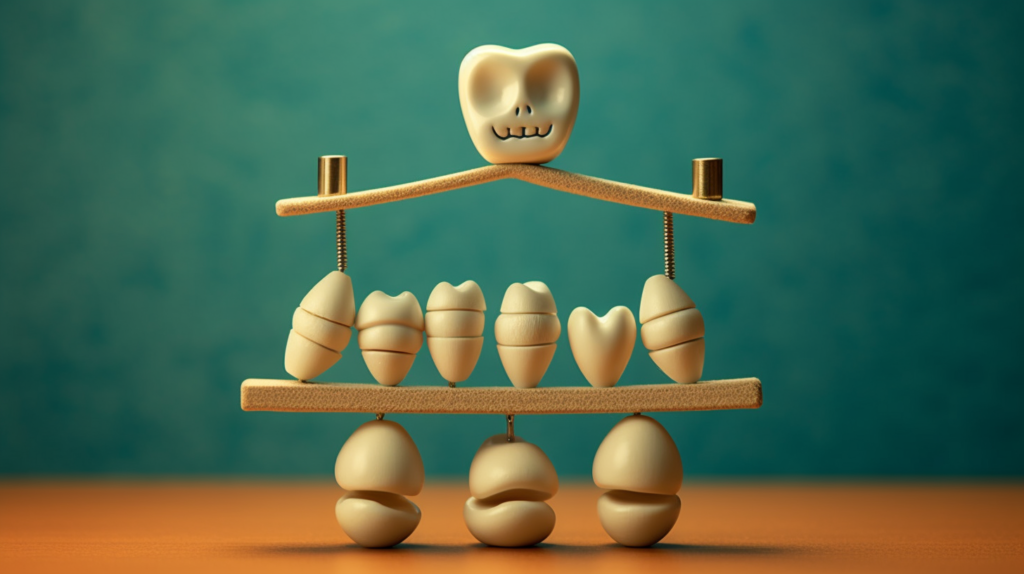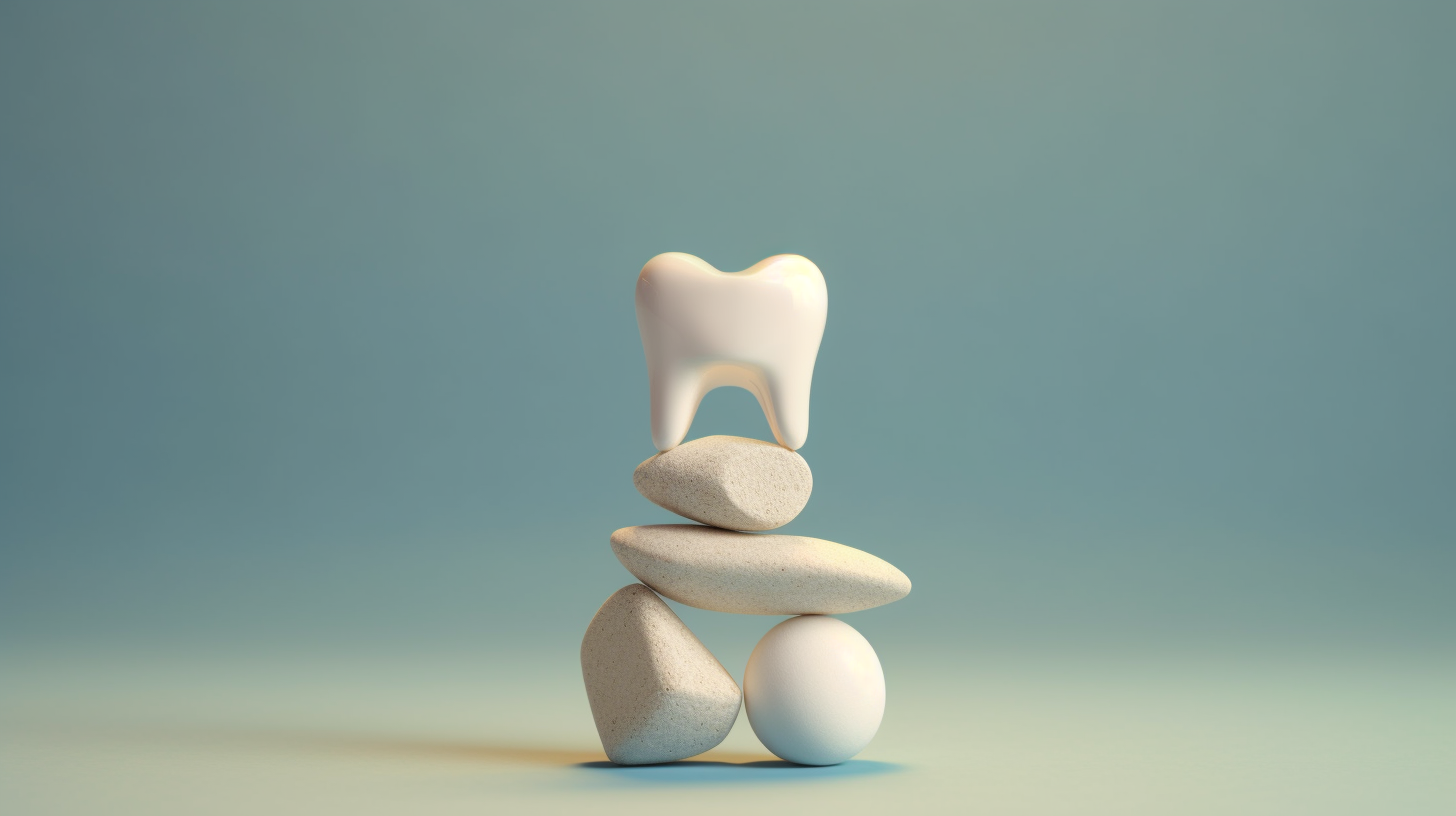Life is all about finding balance. That same principle applies to dental care! Having the right balance of preventative care, restorative care, and lifestyle tips can help your teeth stay healthy and your smile bright. So, if you’re looking to find an equilibrium when it comes to dental care, this article will give you a guide on how exactly to do that. Keep reading to learn more about finding the balance in dental care!
1. Caring for Teeth: A Basic Introduction
Caring for your teeth is essential to keeping smiles attractive, fresh, and healthy. Without proper oral hygiene, you are at risk of tooth decay, gum disease, and general oral health problems. As such, some basic dental care is a must.
The basics start with brushing your teeth twice daily, ideally with a toothbrush and fluoride toothpaste, for two minutes a time. Make sure to brush your tongue as well, as this will help to reduce the number of bacteria in your mouth and freshen your breath. Flossing once a day, after brushing and preferably at night, is also important to reach debris between teeth and keep them clean, as well as preventing decay.
In addition to brushing and flossing, it’s a good idea to:
- Eat a proper, balanced diet, as tooth decay is associated with the amount of sugar consumed.
- Visit the dentist twice a year for regular checkups as well as cleanings. If there are any conditions or problems, the dentist is qualified to suggest treatments.
- Use mouthwash at least twice a week to help combat bad breath and reduce the risk of decay and gum disease.

2. A Balanced Diet: Key to Dental Care
Diet plays an important role in ensuring our teeth remain healthy and our gums stay strong. We need to make sure we eat a balanced diet that’s rich in minerals, vitamins and other nutrients to keep our teeth clean and in good shape.
Here are some basic tips to maintain good dental hygiene through nutrition:
- Vitamin C helps prevent gum disease and tooth decay by regulating the production of saliva in your mouth.
- Calcium is important for healthy teeth and gums. You can get calcium by eating dairy products such as milk, yogurt, and cheese.
- Vitamin D is important for the absorption of calcium, so remember to include some foods high in this vitamin in your diet. Fish, eggs, and mushrooms are good sources of Vitamin D.
- Phosphorus is essential for the development and maintenance of healthy teeth and bones. Include poultry, fish, and whole-grain foods in your diet to get your daily dose of phosphorus.
Finally, remember to cut down on sugary and acidic drinks and food and brush your teeth for two minutes at least twice a day. Eating well and brushing your teeth regularly can go a long way in keeping dental problems such as gum disease, tooth decay, and cavities away. A healthy diet is essential for dental health, so make sure to eat a balanced one.
3. Brushing Up on Good Oral Hygiene Habits
Good oral hygiene habits are essential to maintain a healthy mouth and smile. Proper brushing and flossing can help prevent tooth decay, gum disease, and other mouth-related issues. Here are a few tips to help brush up on your oral hygiene habits.
- Brush and Floss Daily – One of the most basic and important oral hygiene habits is brushing your teeth at least twice a day and flossing at least once a day. Brushing and flossing will help remove plaque and food particles from your teeth and keep bacteria levels low.
- Choose the Right Toothbrush and Toothpaste – When choosing a toothbrush, make sure it has soft bristles and is the right size for your mouth. Pick a toothpaste that has fluoride in it and is designed specifically for your teeth.
- Avoid Suffocating Your Teeth -The mouth is home to many organisms that thrive in different conditions. So it’s important to avoid foods and drinks that are high in sugar and acid, as they can create an acidic environment that can damage your teeth.
By following these tips, and your dentist’s advice, you can help make sure your mouth is as healthy as it can be. Regular maintenance of your oral hygiene can help you maintain a happy and healthy mouth. So brush up on your oral hygiene habits and enjoy the results!

4. Stepping Up Your Dental Routine
Dental care is a vital part of our overall health. To keep your smile looking bright and stay on top of your dental hygiene, there are a few additional steps that you can take in your routine. Keep your teeth and gums healthy by incorporating these tips into your everyday dental care.
- Brush right: You know that brushing your teeth twice a day is important for dental hygiene. But, it’s not enough to just brush—you need to brush for at least two minutes, once in the morning and once more before bedtime. Make sure to use up and down and sideways strokes to get all surfaces of your teeth.
- Floss regularly: It is easy to let flossing slip by in your daily routine. But, the truth is that it’s an essential part of keeping your teeth and gums healthy. Flossing helps to get to the areas that brushing doesn’t and can reduce your risk for gum disease and cavities.
- Rinse with anticavity mouthwash: Rinsing with anticavity mouthwash should be done after brushing and flossing, and can give you extra protection against plaque and bacteria. Choose a mouthwash that has been approved by the American Dental Association to make sure it’s effective.
- Visit the dentist: You should visit the dentist at least twice a year for checkups and cleanings. Seeing your dentist regularly allows them to keep an eye on your oral health and help to prevent any disease or damage from occurring.
Pay attention to your dental care and you can keep your teeth and gums healthy and your smile bright. will be time well spent in the long run.
5. Head off Potential Problems with Regular Check-ups
Regular check-ups can help you identify and address problems before they become major issues. This can save you time, money, and hassle in the long run. The following are five reasons how regular check-ups can help you head off potential issues.
- Maintain your Machine
: Regular check-ups allow preventive maintenance plans to help maintain your specific equipment. With regular maintenance, you can save yourself costly repair bills later.
- Spot Issues Early
: Staying on top of regularly scheduled check-ups can help catch small issues before they become big problems. A small crack on your windshield can become a bigger problem if left too long.
- Save Time
: Rather than wait for issues to become unmanageable, regular check-ups help you to quickly catch and repair problems with little time wasted.
Whether it’s your computer, your car, or your health, regular check-ups can help you stay ahead of potential issues. Keeping on top of scheduled check-ups can help you reduce costs, increase productivity, and keep your life running smoothly in the long run.

6. Dealing with Dental Discomfort: Know When to Seek Help
When you’re experiencing discomfort in your teeth, it can be hard to decide whether it’s something you have to deal with or if you need to seek a professional’s help. Here are a few suggestions for when it’s time to get assistance:
- Severe, localized pain in one area, such as a toothache, often means there’s an issue that needs to be addressed at the dentist.
- Constant pain, especially if it’s in the same area. You won’t be able to get it to go away with over-the-counter painkillers and it won’t just suddenly disappear without treatment.
- If pain is radiating to other parts of your head, go to the dentist as soon as possible.
- If the pain isn’t bad enough to disrupt your day-to-day life, but you still feel like something isn’t right, you should consult a professional.
Dental pain is your body’s way of telling you that something needs attention and it’s important to listen to that. You can nip the problem in the bud if you’re vigilant about visiting the dentist regularly and taking care of your teeth properly. Don’t let dental pain, no matter how small, go unattended to. Taking a proactive approach will ensure that any discomfort you experience is quickly addressed and you’ll go back to living your life pain-free.
7. Find the Right Fit: Choosing the Right Dentist
Choosing the right dentist is not as easy as it may seem. There are plenty of factors to consider when it comes to selecting the right dental care provider for you and your family. To make sure that you and your family’s dental needs are taken care of in the best possible way, here are some tips that will help you find the perfect fit.
- Research: Before you take the plunge, take the time to research dentists near you. Check online to get reviews from previous patients and make sure to find out what their specialty is.
- Know What You Need: Consider your family’s needs to help you narrow down your search. For instance, do you need braces or cosmetic dentistry? Do any of your family members have special needs or require more specialized care? Knowing what kind of dental care you are looking for will help you find a dentist that fits.
- Involve Your Family: Make sure that your family is involved in the process. Ask for their input on the dentist that you are considering and let them know how the dentist will be helping them. It is important to make sure that everyone is on board with the selected dentist.
Making sure you and your family are taken care of with a qualified dentist is key to living a healthy and happy life. By following these steps, you are sure to get the right dentist for you and your family, one who can provide the best dental care while making everyone feel comfortable.

8. Taking Care of Your Teeth: Let’s Make a Plan
Brushing and flossing are the gold standards for good dental health, but it can be challenging to keep up with them. Let’s make a plan together that will help you keep your teeth and gums healthy and looking their best.
Making a Brushing Plan:
Establishing a regular brushing schedule is one of the easiest and most effective methods of maintaining good dental health.
- Set an alarm or reminder on your phone that will help you make time for brushing your teeth twice a day.
- Pick a toothbrush that fits your requirements and preferences – soft-bristled, an angled head, or one with an easy grip handle.
- Choose a toothpaste that you like – one that comes with a flavor you enjoy and has the kind of fluoride you prefer.
- Think of ways to make brushing fun – you can explore different types of toothpaste flavors, catchy tooth brushing songs, or even create a reward system for yourself.
Making a Flossing Plan:
Flossing is also a vital component of good oral hygiene.
- Decide which type of floss suits you best – waxed, unwaxed, flavored, floss picks, or water flosser.
- Choose a time of the day that works to fit the flossing habit into your schedule – after meals, in the morning, or at night when you usually go to bed.
- Don’t forget to floss behind the back teeth – plaque likes to hide there, be sure to get it out!
- Reward yourself for staying with your flossing plan.
Gently brushing and flossing your teeth should be part of your daily routine. With some effort and patience, you are sure to have healthier teeth and gums in no time.
Putting a little effort into finding balance in your dental care can mean a lifetime of healthy, brilliant smiles. Now that you have the knowledge and tools, take the first step on your path to smile perfection!
